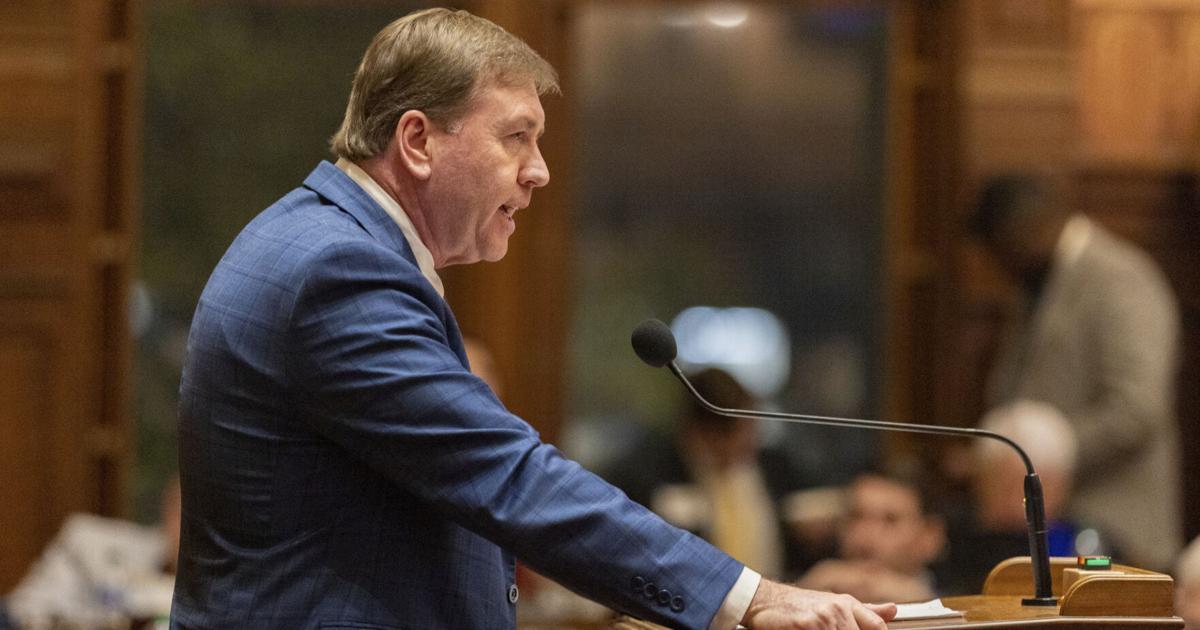A distinctive piece of the crime-fighting agenda being pushed by Gov. Brian Kemp and other senior Republican lawmakers acquitted a Senate committee on Monday after debating legislation that would make recruiting minors in gangs a criminal offense and add stricter mandatory minimum sentences for all gang crimes.
The Judiciary Committee of Georgia’s Senate passed the law to prevent street gangs, Senate Bill 44, by a vote of 6-3. The bill now goes to the Gatekeeping Senate Rules Committee, which determines which laws make it to the floor of the chamber for a vote.
The bill would require anyone 18 or older convicted of a street gang offense to serve at least five years and at least 10 years for recruiting minors to join a gang. Persons convicted of a compulsory sentence will serve the full length of incarceration with no chance of being suspended or commuted to probation.
The judge is given an opportunity to reduce a sentence in certain circumstances if the defendant is instrumental in identifying and convicting other gang members. Prosecutors would have the power to challenge sentences they deem too lenient.
Kemp chairman Senator Bo Hatchett said street gangs run a youth movement in which they recruit younger people to carry out the gang’s crimes because they are not as obvious a target for law enforcement officials and do not face as harsh punishments as the adults .
“The office of the governor wants to send a strong message to gang members: You are coming after our children and endangering our communities, and we will be after you,” said Hatchett, a Cornelia Republican.
“I’m not always for mandatory minimums, but in this case you’re talking about a group of people who are targeting children and trying to recruit them into a criminal enterprise and take their innocence,” Hatchett said.
As street gang violence rises around the Atlanta metro area, Republican leaders are focusing their efforts on crime prevention to reduce homicide rates and other violent crimes in the capital’s business and other neighborhoods.
Republican lawmakers and local law enforcement say gangs are a problem not just in big cities, but also in mid-sized metropolitan and rural areas of the state.
The Atlanta metro area has seen violent clashes by large groups in recent years, with law enforcement saying gang leaders are tricking minors into doing their bidding.
The Senate panel heard opposition to the law from civil rights activists at the ACLU of Georgia and the Southern Center for Human Rights, who say spending more time in prison is a myth. They criticized the measure for stripping judges of discretion while clogging the court system with more juries.
With the state’s extensive list of crimes that could be considered RICO extortion crimes, this means that economic crimes such as mortgage fraud could fall under this umbrella.
Mazie Lynn Guertin, executive director of the Georgia Association of Criminal Defense Lawyers, said longer sentences do not deter criminals or help them reintegrate into society after serving their sentences.
Instead, Senate Bill 44 will likely disproportionately harm teenagers and minors with slightly older siblings who could be linked to gangs.
She said the charges could see someone face 40 years in prison if they’re also convicted of gang and RICO offenses.
Guertin said Georgia’s progress on criminal justice reform has not gone far enough, with statistics from September 2021 showing the state has the fourth-highest incarceration rate per capita in the world.
“Incarceration rates are not a rational response to high crime rates, but they are a politically meaningful response to fear,” she said.
GET THE TOMORROW HEADLINES IN YOUR INBOX
SUBSCRIBE TO
In 2020, the Georgia Bureau of Investigation processed more than 360 crime cases involving street gang connections, which have become more emboldened, said John Melvin, GBI associate director.
That’s just the tip of the iceberg as more gangs infiltrate more and more communities, he said.
“We know that the governor is not only interested in punishing those who commit gang crimes, but also in stopping the flow of gang members into this community,” Melvin said.
Republican Senator from Athens Bill Cowsert asked what other avenues besides increasing criminal sanctions would send the right message when it comes to the proliferation of street gangs recruiting young people.
“What other tools do we have other than to get these people out there to stop it,” he said. “I mean, we tried that route of rehabilitation, we tried three strikes. We tried to restructure our toughest penalties.”
Jack Winne, assistant assistant district attorney for the Coweta Judicial Circuit, said he believes incarcerating gang members reduces violent crime.
“The reality in many cases is disenfranchisement in the way these gangs indoctrinate and corrupt their members,” Winne said. “They need to be removed from the community to avoid bullying (other people).”
Sen. Harold Jones, an Augusta Democrat, said the state already has severe penalties for the crimes that would fall under the law.
The problem is that political leaders and others with the power to change the dynamic are unwilling to make the long-term investments to change a gang culture, he said.
“We know there are core issues that cause someone with mental health or poverty or whatever, but we’re saying we can’t deal with that now, but ten years later it’s the same issue,” Jones said.









